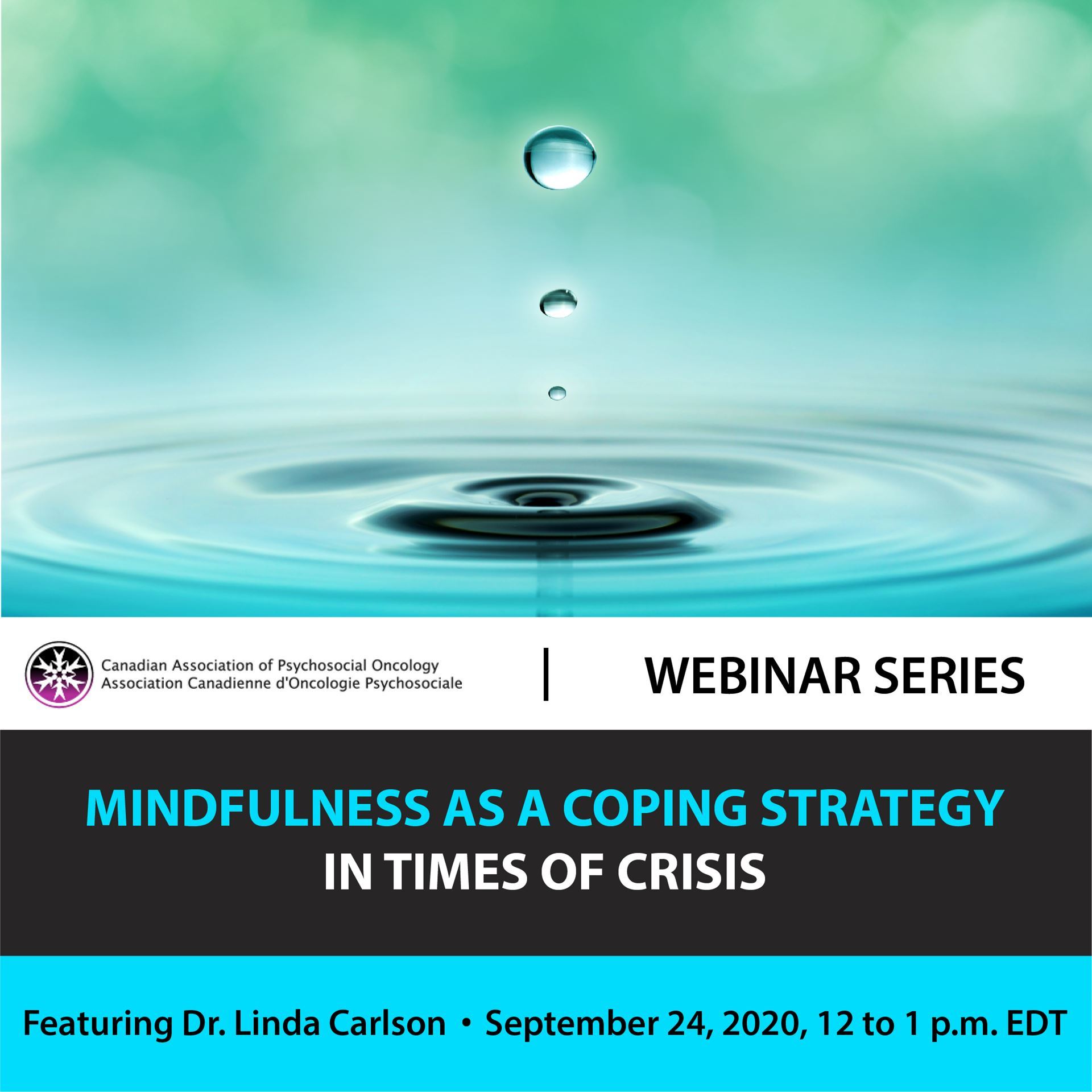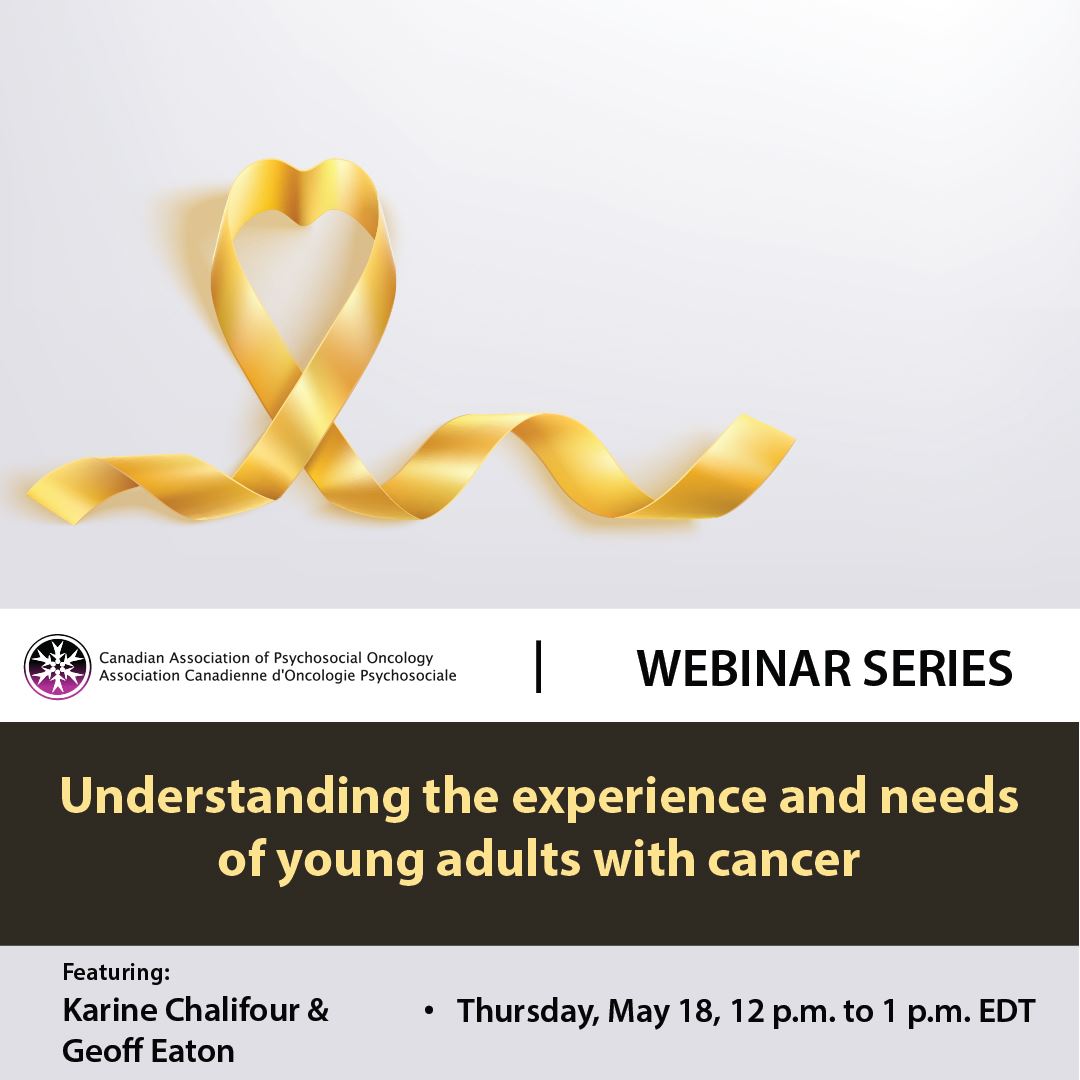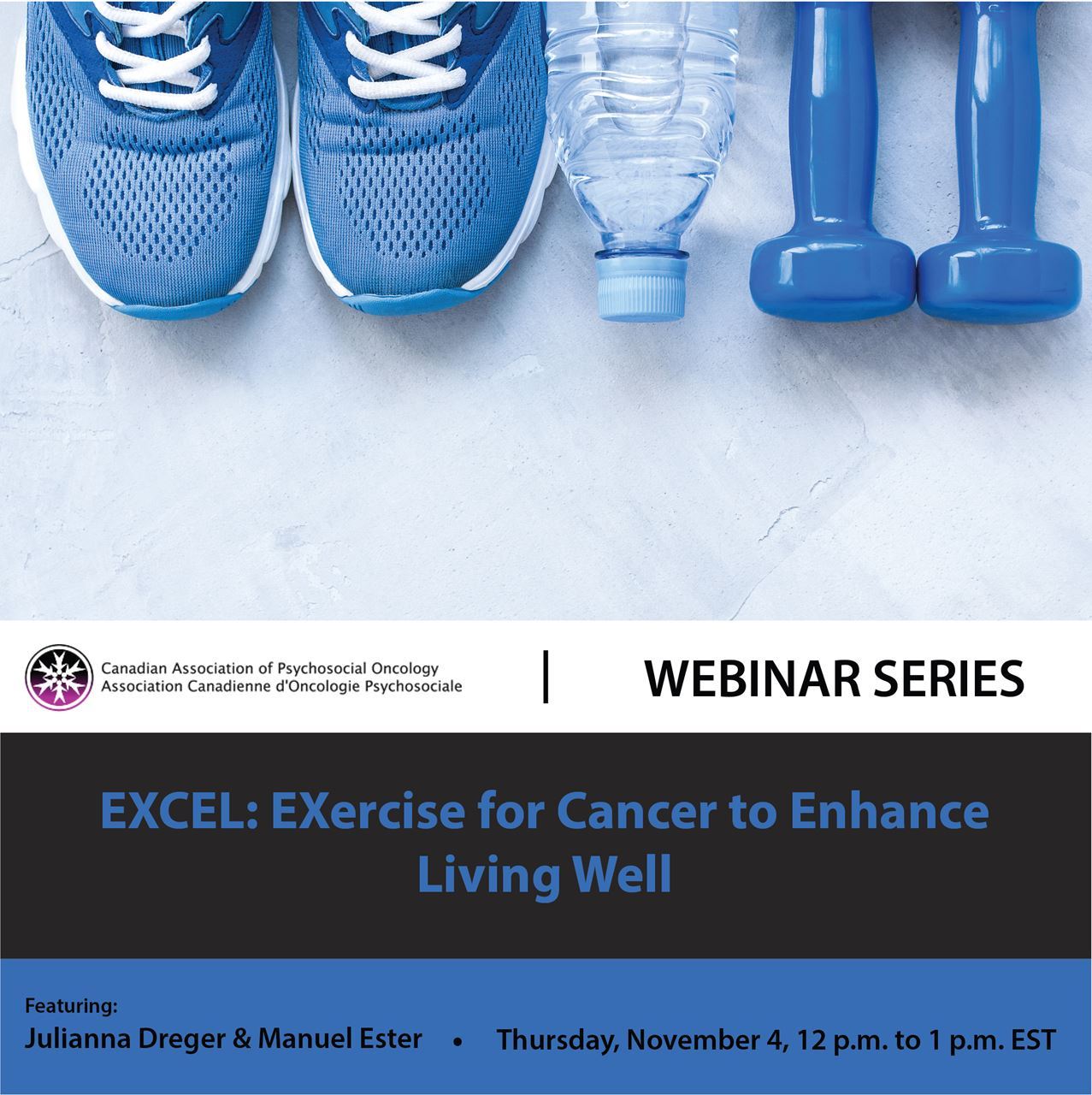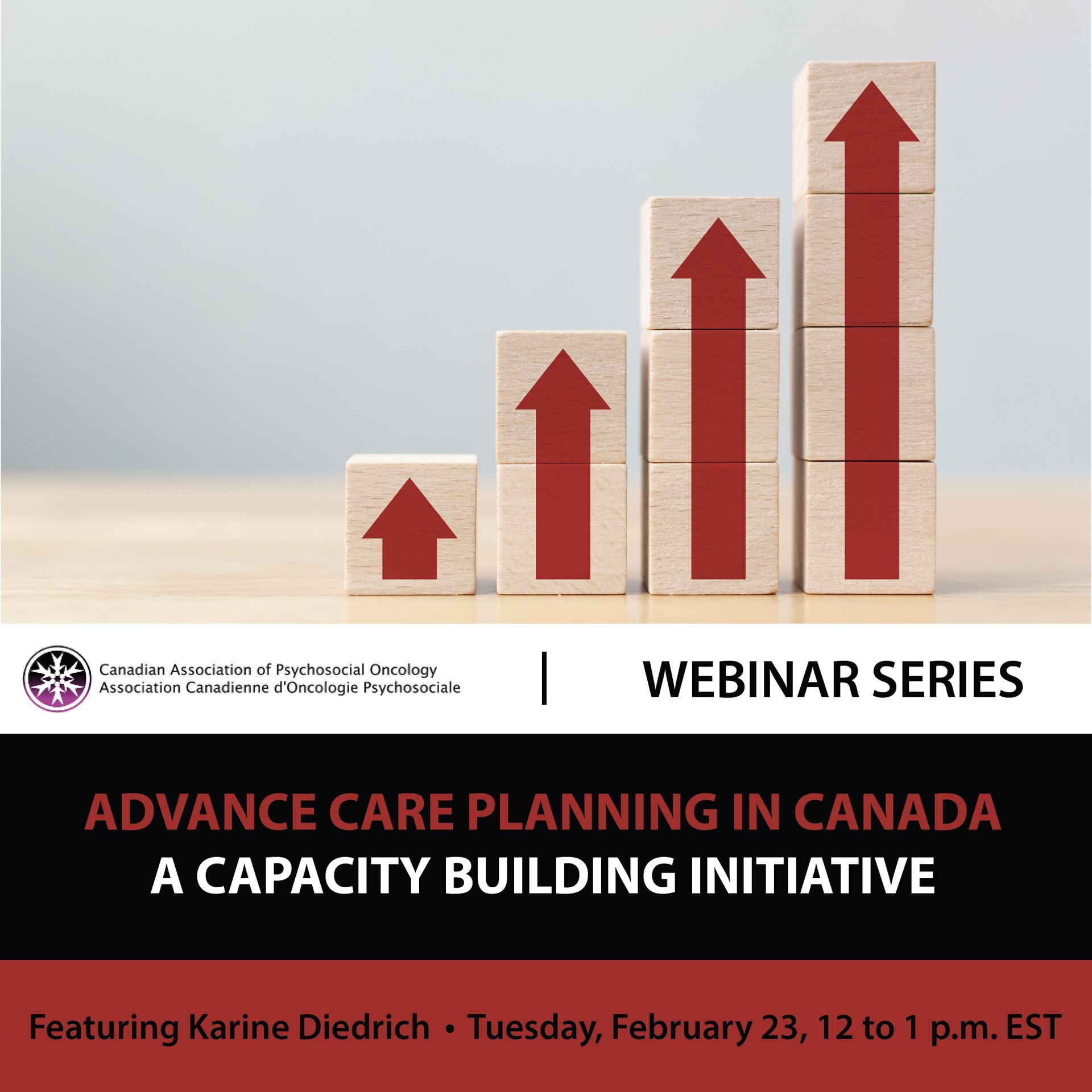CAPO WEBINAR SERIES
CAPO is pleased to release a series of free webinars. To further our efforts to encourage interdisciplinary excellence in psychosocial research education and clinical practice in oncology, the CAPO Education Committee in collaboration with the CAPO Research Committee has planned a series of webinars of varied topics address psychosocial oncology.
 Implementation Science in Action: Key Approaches for Integrating PROMs in Cancer Care
Implementation Science in Action: Key Approaches for Integrating PROMs in Cancer Care
Tuesday, February 17, 12 to 1 p.m. EST, on Zoom
Learning Objectives:
By the end of the webinar, participants will be able to;
- Describe the role of implementation science in supporting the integration of PROMs in cancer care
- Identify key implementation science frameworks, models, and tools, and understand how they can be applied to plan, implement, and evaluate PROM integration in cancer care
- Identify different implementation strategies and how they can be applied to support PROM integration
- Describe approaches for assessing and monitoring implementation outcomes (e.g., reach, adoption, fidelity) and how these outcomes can be used to guide adaptation of implementation strategies
Featuring:

Christian Lopez is an implementation science researcher focused on improving the integration of person-centred care interventions into routine cancer care. His research expertise lies at the intersection of implementation science, patient-reported outcome measures (PROMs), and cancer rehabilitation and survivorship.
He recently completed his PhD at the University of Toronto, conducting his research with the Cancer Rehabilitation and Survivorship Program at the Princess Margaret Cancer Centre. His work focuses on applying implementation science to support the integration of PROMs into routine cancer care, using theories, models, and frameworks to understand barriers, guide strategy design, and evaluate implementation outcomes.
Fees:
- FREE to CAPO Members
- FREE to Non-Member Patients/Caregivers
- $15 to Non-Members (no tax)
We hope you’ll join us for this powerful and timely conversation.
Webinar access details will be provided in the registration confirmation email. Pending quality of the recording, this webcast will be available within 30 days of the live webinar.
Register Here From persistence to policy: Breaking barriers in rare cancers care
From persistence to policy: Breaking barriers in rare cancers care
Wednesday, February 25, 12 to 1:30 p.m. ET
Targeted innovative therapies are offering new hope to individuals with rare cancers. Unfortunately, in Canada, timely access to testing and treatment requires advocacy and persistence from patients, families, clinicians, and advocates. But that should not be the case.
This webinar features a moving testimony from someone living with cholangiocarcinoma, sharing her experiences to show how individual advocacy, leaning on community support, and holding onto rebellious hope can change everything.
Her testimony will set the stage for our panel discussion with leaders from national organizations, including the Canadian Organization for Rare Disorders (CORD) and the Canadian Cholangiocarcinoma Collaborative (C3). The panel discussion will explore how Canada can move from reliance on individual efforts to a national, system-based approach for rare cancers to have better access to molecular testing and treatment options, while raising awareness of the current challenges rare cancers face in Canada. Speakers will examine how targeted testing, patient registries, research navigation, and outcome monitoring can form a scalable model applicable across all rare cancers. The discussion will also situate rare cancers as a critical pillar of Phase 2 of Canada’s Rare Disease Drug Strategy, highlighting practical, implementable solutions to improve equity, access, and sustainability.
This webinar will feature one patient's exceptional journey for access. But it is also a call to build systems that no longer require exceptionality. A live Q&A will follow the discussion, giving you the chance to engage directly with our panelists.
Moderator: Samar Attieh
Featuring:
 Cynthia Mitchell: Cynthia Mitchell has been living with cholangiocarcinoma since 2021. As a dedicated partner and advocate for the Canadian Cholangiocarcinoma Collaborative (C3), she focuses on raising awareness about this rare cancer and building community across Canada. Cynthia is passionate about making molecular testing and relevant therapies accessible to everyone, striving to improve outcomes for patients and their families. Her advocacy work is driven by a commitment to education and support within the cholangiocarcinoma community.
Cynthia Mitchell: Cynthia Mitchell has been living with cholangiocarcinoma since 2021. As a dedicated partner and advocate for the Canadian Cholangiocarcinoma Collaborative (C3), she focuses on raising awareness about this rare cancer and building community across Canada. Cynthia is passionate about making molecular testing and relevant therapies accessible to everyone, striving to improve outcomes for patients and their families. Her advocacy work is driven by a commitment to education and support within the cholangiocarcinoma community.
 Durhane Wong-Rieger: Durhane Wong-Rieger is the President and CEO of the Canadian Organization for Rare Disorders (CORD), President of the Asia Pacific Alliance of Rare Disease Organization, and President of the Institute for Optimizing Health Outcomes and Chair of Canadian Heart Patient Alliance. Durhane is immediate Past-Chair of the Rare Disease International and Treasurer of the WHO NGO on Rare Disease. She is a member of several advisory boards and committees, including Co-Chair of the Implementation Advisory Group for Canada’s Strategy on Drugs for Rare Diseases. She has a PhD in psychology from McGill University.
Durhane Wong-Rieger: Durhane Wong-Rieger is the President and CEO of the Canadian Organization for Rare Disorders (CORD), President of the Asia Pacific Alliance of Rare Disease Organization, and President of the Institute for Optimizing Health Outcomes and Chair of Canadian Heart Patient Alliance. Durhane is immediate Past-Chair of the Rare Disease International and Treasurer of the WHO NGO on Rare Disease. She is a member of several advisory boards and committees, including Co-Chair of the Implementation Advisory Group for Canada’s Strategy on Drugs for Rare Diseases. She has a PhD in psychology from McGill University.
 Leonard Angka: Leonard is the Project Manager for the Canadian Cholangiocarcinoma Collaborative (C3), where he leads national efforts to improve access to care and research opportunities for Canadians living with biliary tract cancers. He oversees C3’s multi-institutional programs, including the national patient registry, molecular testing initiatives, and C3-led clinical trials, and works closely with clinicians, researchers, and patient partners across Canada. He is actively engaged in patient-centred advocacy and is passionate about ensuring equitable and timely access to care.
Leonard Angka: Leonard is the Project Manager for the Canadian Cholangiocarcinoma Collaborative (C3), where he leads national efforts to improve access to care and research opportunities for Canadians living with biliary tract cancers. He oversees C3’s multi-institutional programs, including the national patient registry, molecular testing initiatives, and C3-led clinical trials, and works closely with clinicians, researchers, and patient partners across Canada. He is actively engaged in patient-centred advocacy and is passionate about ensuring equitable and timely access to care.
- FREE to all
Presented in partnership with:


The following webinar recordings are now available. Recording access details will be provided in your registration confirmation email.
If you are not a current member of CAPO, find out more about membership by going to https://capo.ca/apply
 Recording: Psychosocial Screening in Pediatric Cancer: Recommendations from the Advancing Childhood Cancer Experience, Science & Survivorship (ACCESS) National Consortium and Next Steps FREE to CAPO members$15 for non-members Access Recording Here
Recording: How can research culture adapt to more effectively engage patients and caregiver partners in the future? FREE to CAPO MembersFREE to Non-Member Patients/Caregivers $15 to Non-Members |  Recording: Optimizing support systems for cancer patients through applying an evidence-based CBT stress management and relaxation intervention FREE to CAPO members$15 for non-members Access Recording Here
FREE to all |
Recording: Artificial Intelligence: Evolution, challenges and opportunities for supportive care in cancer FREE to CAPO Members$15 to Non-Members Register Here |
Recording: Overcoming Combination Complexity and Expanding Diversity in Research: An Introduction to MAIHDA FREE to CAPO MembersFREE to Non-Member Patients/Caregivers $15 to Non-Members | 
Recording: Partnering with Diverse Patients to Advance Equitable Cancer Care: Stories From the Field FREE to CAPO MembersFREE to Non-Member Patients/Caregivers $15 to Non-Members |
Recording: Supporting High-Quality Patient Engagement in Research: Planning, Implementation and Evaluation FREE to CAPO Members$15 to Non-Members Register Here |
.jpg)
Recording: Fear of Progression, Uncertainty and Scanxiety in Advanced Cancer Patients Living Long-Term Due to Systemic Treatment FREE to CAPO members$15 to non-members Register Here |
Recording: Co-creating Culturally Safe Cancer Survivorship Care with Indigenous Peoples FREE to CAPO members$15 to non-members Register Here |
Recording: Work Following Cancer: Strategies, Insights, and Reflective Exercises for Moving Forward FREE to CAPO members$15 to non-members |
$15 to non-members Register Here |
Recording: Exploring Digital Storytelling as a Psychosocial Tool with young Adult Cancer Survivors FREE to CAPO members$15 to non-members Register Here | Recording: Excel: EXercise for Cancer to Enhance Living Well FREE to CAPO members$15 to non-members |
Recording: Advance Care Planning In Canada. A Capacity Building Initiative FREE to CAPO members$15 for non-members Register Here |  Recording: Mindfulness as A Coping Strategy In Times of Crisis FREE to CAPO members$15 for non-members Register Here |
 Past Webinars
Past Webinars
CAPO members can watch past webinar recordings for FREE in the CAPO members only section.
June 25, 2020 March 20, 2020 Featuring Doris Howell, RN, PhD, Professor December 4, 2019 March 28, 2019 January 16, 2019 April 18, 2018 March 21, 2018 February 7, 2018 January 17, 2018 November 22, 2017 April 19, 2017 March 1, 2017 February 22, 2017 January 25, 2017 | April 12, 2016 February 24, 2016 January 20, 2016 November 25, 2015 November 18, 2015 September 29, 2015 June 23, 2015 Feb 18, 2015 Jan 21, 2015 Nov 25, 2014 Oct 21, 2014 Oct 14, 2014 Sept 17, 2014 Apr 8, 2014 Mar 18, 2014 Jan 21, 2014 |


 Recording: The Financial Burden of Cancer — Stories, Data & Advocacy
Recording: The Financial Burden of Cancer — Stories, Data & Advocacy




.jpg)
.jpg)

.png)
.jpg)
.jpg)
.jpg)

